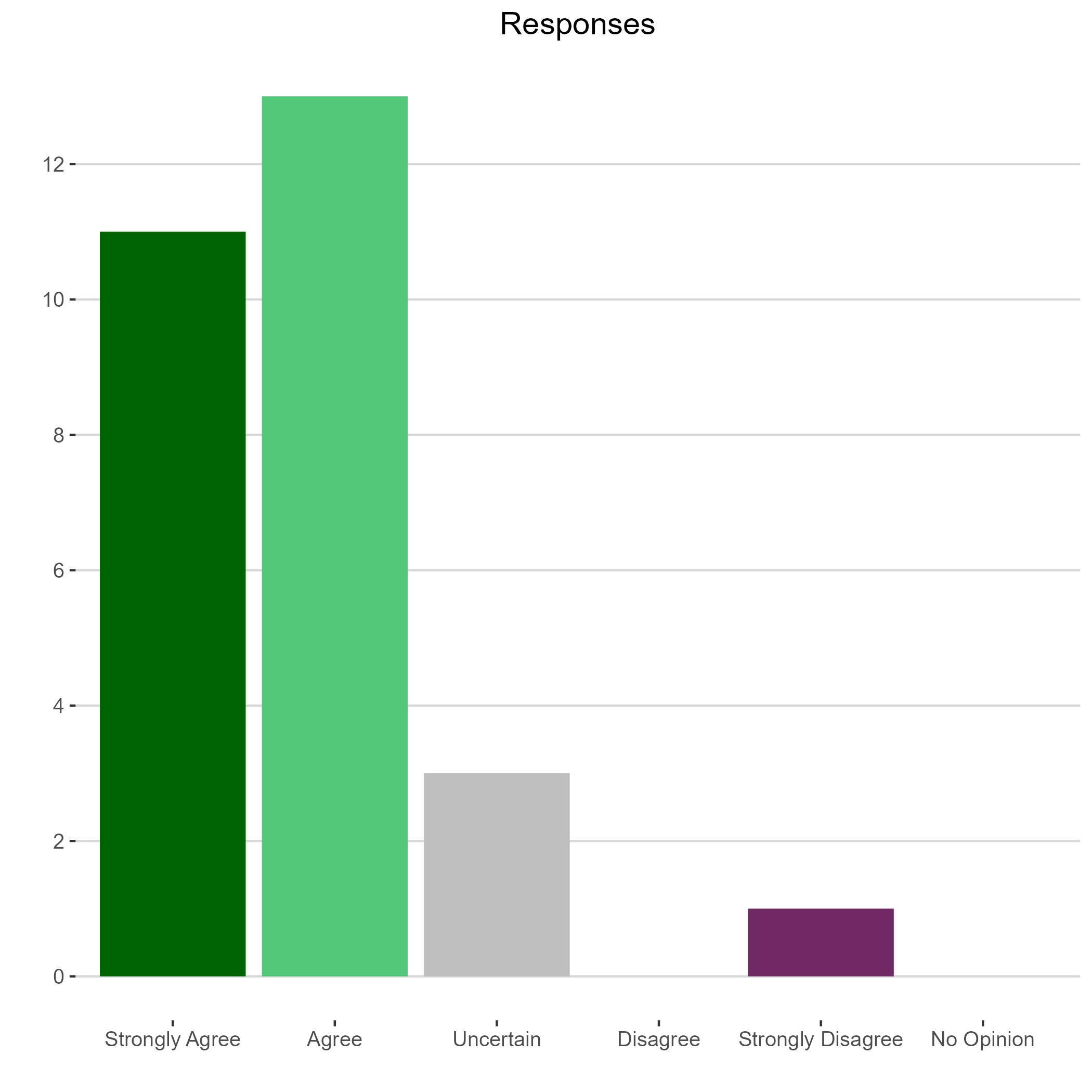| Jonathan Andreas |
Bluffton University |
Agree |
7 |
Pre-K education is generally more cost effective than spending on education for older youths because it is relatively cheap, and the true direct cost is also much smaller than the sticker price because it would replace expensive existing programs and tax subsidies and it would increase tax revenues by increasing workforce participation among parents. It also has the advantage of potentially boosting later educational outcomes for more years. The big uncertainty is whether it would be implemented as effectivly as the many programs that have been studied in the past that have shown high ROI. |
| Bizuayehu Bedane |
Marietta College |
Agree |
9 |
|
| David Brasington |
University of Cincinnati |
Uncertain |
5 |
|
| Glenn Dutcher |
Ohio University |
Agree |
9 |
|
| Kevin Egan |
University of Toledo |
Agree |
8 |
I think the economics benefits are greater than the economic costs as children are our future workers and the first 5 years is so important. However, it may be best to have optional pre-K vs. mandatory so parents can decide if the subsidized pre-k program is better or not than their current alternative. |
| Hasan Faruq |
Xavier University |
Strongly Agree |
9 |
|
| Bob Gitter |
Ohio Wesleyan University |
Agree |
9 |
The evidence clearly shows that investment in providing pre-kindergarten improves earnings down the road enough to justify the expenditure just on those grounds. Also, parents could more easily seek employment, paying in more more tax dollars. |
| Nancy Haskell |
University of Dayton |
Agree |
8 |
|
| Paul Holmes |
Ashland University |
Strongly Agree |
10 |
I think there's broad agreement about this in the literature. |
| Michael Jones |
University of Cincinnati |
Uncertain |
1 |
There are so many ways to implement these programs, that the devil is really in the details. We've seen some programs with great returns, but the recent research from Vanderbilt showing negative returns to universal pre-k is concerning. |
| Fadhel Kaboub |
Denison University |
Strongly Agree |
10 |
Absolutely, the empirical evidence is very clear about the importance of early childhood education having a high return on investment in the long term. |
| Charles Kroncke |
Mount Saint Joseph University |
Strongly Disagree |
10 |
|
| Bethany Lemont |
Ohio University |
Agree |
10 |
Additionally, evidence exists that suggests that a universal program would be more economically efficient than a targeted program: According to Cascio (2021) “The constellation of evidence is consistent with universal pre-K delivering greater benefits to the population it serves, relative to the costs, than targeted pre-K.”
Source:
Cascio, Elizabeth. 2021. “Does Universal Preschool Hit the Target? Program Access and Preschool Impacts,” The Journal of Human Resources |
| Trevon Logan |
Ohio State University |
Strongly Agree |
9 |
|
| Joe Nowakowski |
Muskingum University |
Agree |
9 |
|
| Curtis Reynolds |
Kent State University |
Agree |
8 |
The research is pretty strong to support this, with two caveats: 1) the focus needs to be on high quality pre-K (so need to fund enough), and 2) it would be good for the children, but not necessarily long term for the state if they migrate somewhere else (a constant problem in Ohio, but maybe this would encourage people to move here or stay here). |
| Lewis Sage |
Baldwin Wallace University |
Strongly Agree |
10 |
|
| Dean Snyder |
Antioch College |
Agree |
8 |
|
| Kay E. Strong |
Independent |
Strongly Agree |
10 |
Assuming a high-quality pre-kindergarten program with sufficient funding to include use and support
of comprehensive early learning standards and curricula; credentialed teachers; ongoing teacher training and
support; appropriate class size and teacher-student ratio; and a system of continuous quality improvement, then the children of the State are winners both in short and long term respects. That is really all that should matter because they are the future upon which everything else in the State will be built. |
| Albert Sumell |
Youngstown State University |
Strongly Agree |
10 |
Studies have shown that Universal Pre-K programs are one of the most cost effective ways to improve childhood outcomes for low income families. It also increases labor force participation. |
| Melissa Thomasson |
Miami University |
Strongly Agree |
10 |
|
| Thomas Traynor |
Wright State University |
Strongly Agree |
9 |
Most independent research indicates that pre-K education generates benefits that far exceed costs (assuming it is implemented reasonably well). |
| Ejindu Ume |
Miami University |
Strongly Agree |
10 |
|
| Andy Welki |
John Carroll University |
Strongly Agree |
9 |
|
| Kathryn Wilson |
Kent State University |
Agree |
5 |
It is not clear if the universal pre-kindergarten program would be required or would be made available to all who wanted to attend. I believe that making pre-kindergarten programming available to all would have benefits that outweigh the economics costs, recognizing that many of those benefits may come well into the future while the costs are now. |
| Rachel Wilson |
Wittenberg University |
Strongly Agree |
10 |
Economic research consistently supports this. |






